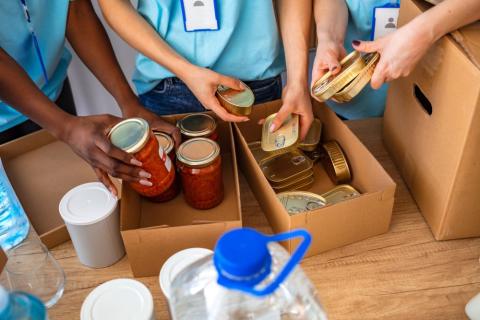SAFE for Food Pantries Class Series
An important part of offering healthy food at your food pantry is making sure the food is safe to eat. Every year, foodborne illness affects more than 48 million individuals in the United States alone, and food pantry visitors may be more susceptible to serious consequences from foodborne illness than the general population based on who they are and their health status. Food pantries can create a safe food environment by providing safe food, storing food properly, and maintaining as safe environment for patrons.
Safety Awareness in the Food Environment (SAFE) for Food Pantries is a 2.5-hour program on safe food handling topics for any food pantry volunteer or staff member who would like to learn more about safe food handling in a food pantry environment. It is also a training requirement for New Hampshire Food Bank food pantry member agencies.
SAFE for Food Pantries topics include:
- Why food workers should not be working when ill
- The importance of personal health & hand hygiene
- Preventing the spread of pathogens in the food pantry
- Why cleaning & sanitizing are key in keeping a food safe pantry
- Understanding and managing food product dating
- When to accept or reject donations
- Tips for safe distribution of food
For your comfort, there is a 10-minute break provided approximately halfway through the 2.5 hour program.
Join one of the free, interactive, online classes by clicking the date you wish to attend and registering on the event page for that date. All listed classes cover the same content. Registrants do not need to attend multiple sessions.
January 21, 2026 | 3:00 - 5:30pm (Zoom)
March 9, 2026 | 9:00 - 11:30am (Zoom)
No cost but preregistration is required.
You will need access to Zoom -- join by computer or phone.
NOTE: Certificates will contain hours of participation and can be used by school nutrition programs and soup kitchens/feeding programs to fulfill required food safety training. Certificates of participation will be sent to NH Food Bank for member agency programs participants who complete the class.
Food Pantry Donations from Home Gardeners Fact Sheet
Food Safety and Quality Quick Alert Strategy Poster
Food Safety for Food Pantries What to Keep & What to Discard Poster

